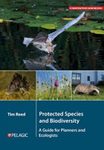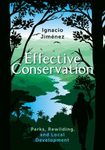![Reforesting the Earth Reforesting the Earth]()
Click to have a closer look
About this book
Contents
Customer reviews
Biography
Related titles
About this book
Forests offer a natural solution to the climate crisis. Conserving and expanding them not only removes carbon from the atmosphere but also protects and fosters biodiversity. Yet the results of elite-driven reforestation initiatives have been disappointing, and in many world regions deforestation continues relentlessly.
Thomas K. Rudel examines a wide range of conservation and reforestation efforts to shed new light on the social factors that lead to success. He details effective coalition-building strategies and organizational models that have protected, restored, and expanded forests around the world. Rudel argues that successful reforestation projects bring together diverse groups of people with a stake in the land and a commitment to collective decision making. They give voice to different economic and social interests, including small farmers, Indigenous peoples, loggers, ranchers, government officials, NGO personnel, international donors, and climate activists. These varied coalition members each make commitments to promote forests. Farmers limit the extent of lands under cultivation, governments protect land tenure for smallholders, and wealthy donors make payments for environmental protections.
Timely and accessible, Reforesting the Earth offers a guide to scaling up local efforts to sequester carbon and makes a powerful case for a global reforestation movement.
Contents
Preface
Acknowledgments
List of Abbreviations
1. Forests: A Natural Climate Solution
2. Theory: Societal Transformations, Corporatism, and Forest Gains
3. Forest Losses, the Conservation Movement, and Protected Areas
4. Rural-Urban Migration, Land Abandonment, and the Spread of Secondary Forests
5. Planted Forests: Concessions, Plantations, and the Strength of States
6. Agroforests I: The Spread of Silvopastures
7. Agroforests II: Restoring Agroforests in the Humid Tropics
8. Resurgent Forests: A Qualitative Comparative Analysis
9. A Global Forest Transition?
Glossary
Notes
Bibliography
Index
Customer Reviews
Biography
Thomas K. Rudel is a Distinguished Professor Emeritus of Human Ecology and Sociology at Rutgers University. His most recent book is Shocks, States, and Sustainability: The Origins of Radical Environmental Reforms (2019).
New
By: Thomas K Rudel(Author)
274 pages, 16 b/w photos and b/w illustrations, 12 tables
"Thomas Rudel is in a class of his own as a wide-ranging thinker and synthesizer of environmental research. Reforesting the Earth is a remarkably timely book that rings a note of optimism for our planet – forwarding the view that severely damaged ecosystems and their imperiled species can be dragged back from the edge of extinction."
– William F. Laurance, Distinguished Research Professor and Australian Laureate, James Cook University
"This book analyzes the various ways forests are being restored, as illustrated by case studies from all over the world. Rudel eloquently argues that the success of interventions to conserve and expand forests depends on committed governments and nongovernmental organizations working together with local landholders. An essential book to help forests deliver global benefits for humanity, including climate change mitigation."
– Eric Lambin, George and Setsuko Ishiyama Provostial Professor, Stanford University and Professor, UCLouvain
"Reforesting the Earth demonstrates Rudel's ability to weave together a large amount of complex dynamics into a compelling narrative. This narrative makes a convincing case for the crucial role of compacts, or coalitions of actors, as effective agents to address forest conservation and restoration challenges within the broader context of land use, land tenure, inequality, and livelihoods issues. Linking explicitly to the questions of consumption and degrowth, this book provides an optimistic, forward-looking but lucid roadmap for activists' coalitions."
– Patrick Meyfroidt, UCLouvain



































